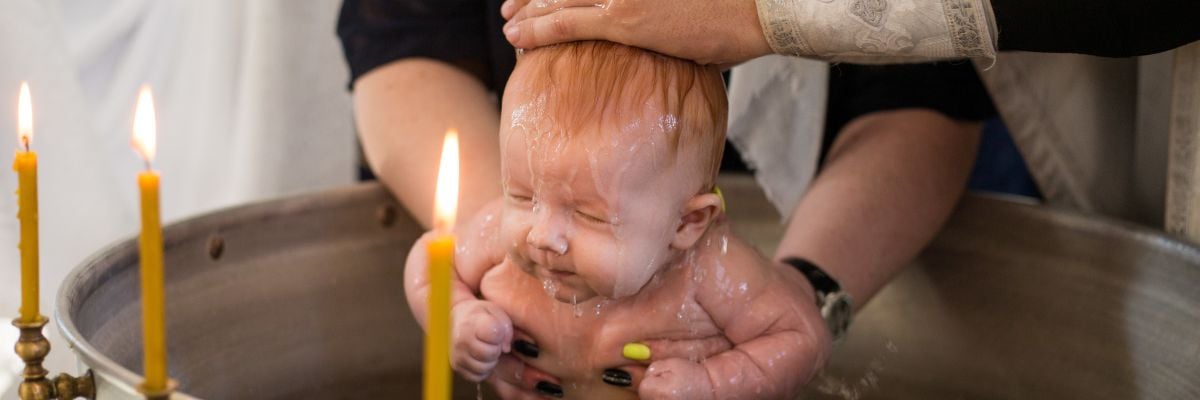
The Greek word that the Bible uses for baptism is “baptizo” (βαπτίζω), which means, “to immerse.” Does this mean that Catholic baptisms are invalid since priests pour water instead of immerse? Karlo Broussard gives the reason why the answer is no, and explains why pouring is a legitimate method to baptize.
Transcript:
Fundamentalists claim baptism by immersion is the only true baptism because the Greek word baptizo found in the New Testament means “to immerse.” They also argue that only immersion adequately signifies being “buried” and “raised” with Christ as St. Paul teaches in Romans 6:3-4.
So, how do we respond?
Well, although “baptizo” is often used to mean immersion, it can also mean to wash up. This is how its used in Luke 11:38 when the Pharisees were appalled at how Jesus didn’t wash [baptizo] before dinner. Since the word can be used in different ways, it doesn’t necessitate the conclusion, “Only immersion baptisms are valid baptisms.”
Now, we can agree with our Fundamentalist friends in that full immersion does bring out the meaning of the sacrament more fully than pouring and sprinkling. The Catechism of the Catholic Church makes this clear in paragraph 1239.
But that doesn’t mean non-immersion baptisms are invalid. In fact, we have a biblical and historical precedent for a pouring, or at least a non-immersion, method. The prophet Ezekiel, in 36:25, speaks of God sprinkling clean water when the new covenant is made. Peter, in his Pentecost sermon, teaches God pours out the Holy Spirit, which in Acts 2:38 we’re told is done in baptism.
The Didache, a first-century Christian catechism dating to around A.D. 70, gives instruction on how to baptize stating, “Pour over the head three times.”
So, whether you’ve been dunked, sprinkled, or had water poured on your head, no need to fret, you’ve been validly baptized.
If you want to learn more about this topic and others like it, visit our website at catholic.com.
For Catholic Answers, I’m Karlo Broussard. Thanks for watching.



